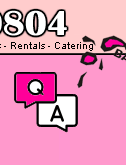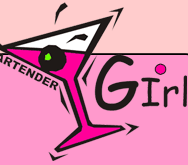|

How Alcohol Liability Affects You
Whether you serve cocktails in a restaurant or bar, sell beer at a
convenience or liquor store, or offer wine and other spirits in your
own home, you can be held liable, or responsible, should one of your
patrons, customers, guests or friends become intoxicated and cause
damages to themselves, others or property. This page is
designed to outline the various forms of liability, the laws
involved.

Civil Liability
Civil liability allows individuals to bring cases against licensees,
social hosts, or companies if the event was work-related or a
company function. Lawsuits can be filed by innocent victims injured
by an intoxicated person or the intoxicated person himself. Juries
typically award monetary damages to compensate victims (compensatory
damages) and to punish the offender (punitive damages). Awards can
range from a few thousand dollars to several million. We are a
COVID-Compliant Business.
Civil Lawsuits are based on three basic forms of law. The laws in
each state vary, so check with your local liquor board to find out
which laws are used in your state.
Criminal Liability
Criminal liability allows the state to bring a suit against a
licensed establishment, individuals employed by that establishment,
social hosts or employers. These suits, unlike the civil suits,
address the criminal aspect of serving alcohol irresponsibly. A
common form of a criminal suit involving liquor liability would be
if an intoxicated patron were to injure or kill an innocent third
party and the state brought a criminal action against the patron and
the people who served the patron.

While a civil suit typically carries a monetary judgment, the result
of a criminal suit can often be prison time. The outcome of a
criminal suit is not dependent on the outcome of the civil suit for
the same instance. Both cases would be decided independently.

Administrative Liability
Administrative liability applies to any liquor license holder. The
licenses are granted by state liquor control boards, which give out
the administrative penalties if any of the regulations that govern
the licensees are broken.
Penalties for violating the terms of a liquor license can
include fines, suspension of the license or even revocation of the
license. Suspension of a license can mean lost revenue for the
period of time the suspension is enforced, as well as damage to the
establishment's reputation and image. Revocation of a license can
mean losing the business entirely.
This form of liability is usually the first form that licensees will
experience. Common grounds for these penalties include failing to
check IDs, serving an underage patron or serving an intoxicated
patron.
Common Questions for BartenderGirl ™

If you have any further
questions please call our office to speak with an event planner
coordinator at 1.800.665.0804 or e-mail us at
|











